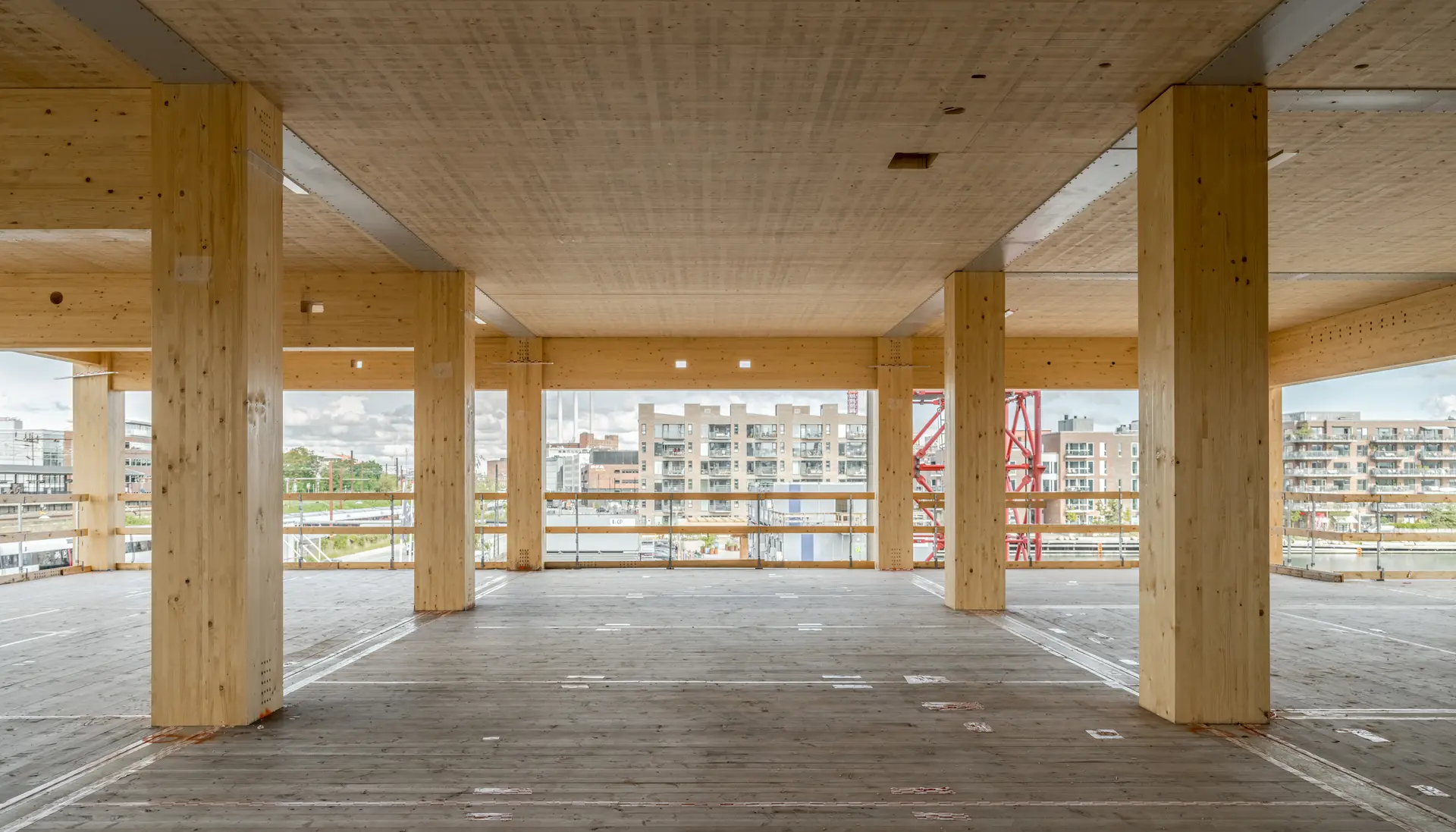Four reasons to build in wood

For centuries, before concrete and steel structures became common place, wood was the building material of choice. Now, with a need for a sustainable alternative and the rapid technological advancements accompanying timber architecture, there has never been a better time to build in wood. Here’s why.
1. It's Sustainable
Wood and other organic materials are the only construction materials that can store carbon dioxide and, therefore, have a negative CO2 balance — even after accounting for the energy required in processing. Concrete and steel, in comparison, hold many times the embodied energy of wood construction. While recycling these products improves their carbon footprint, only timber has the ability to eliminate it.
Timber milled from sustainable forestry — for example FSC or PEFC certified— is also the only major constructing material that is completely renewable. Globally, there is enough of a timber supply to meet the surge in demand. The growth rate of European and Northern American forests, for instance, far exceeds the rate it is currently harvested.
2. It's Efficient
Building in wood saves approximately one third of the building time used in conventional concrete construction. The building is weather-tight upon installation of the prefabricated wooden structure and, as there is no drying or hardening time required, the interior can be installed immediately after. Prefabrication frees the construction process from the uncertainty of weather events and allows for easy construction even in winter months.
There is no reason building in wood should be more expensive than conventional construction and, in fact, can even save money. In particular, the shortened constructing time of prefabricated wood structures reduces the overall building costs. The walls and ceiling surfaces don’t require an extra layer of finish because wood can be directly exposed. As a light construction material, wood can also be built up higher on weaker ground with less foundation.
3. It's Safe
Building in wood is just as safe as concrete or steel construction while providing long term health benefits. Far from being an unpredictably flammable material, wood has a calculatable burn time and innate flame retardant properties. The char layer formed on wooden surface actually slows the combustion process down and does not need extra treatment to withstand collapse from fire, whereas steel quickly starts to deform under heat and concrete collapses without warning.
Living in a timber home improves overall health while exposing residents to significantly less toxins than conventional home building materials. Exposure to wood has proven to relax heart rates and can improve the recovery and healing times of ill people. The naturally occurring antibacterial effect of wood brings an additional hygienic advantage to its mental wellness benefits.
4. It's Beautiful
Building in wood offers unique design possibilities due to the combination of aesthetic and structural qualities in the material. Timber construction not only has strong environmental advantages but has also produced a design movement all its own. The sheer variety of wood species allows for endless opportunities. Wooden architecture creates elegant structural solutions that can be admired in both standardized and freeform architecture.
Wood is a natural material that provides a complete sensory experience to architecture. Its distinctive qualities—warmth, tactility, smell— is almost universally appreciated. With the ability to regulate humidity in a room, wood also improves indoor air quality and climate. Timber architecture bridges the gap between the natural and built world while creating a sustained connection with nature in daily life.



